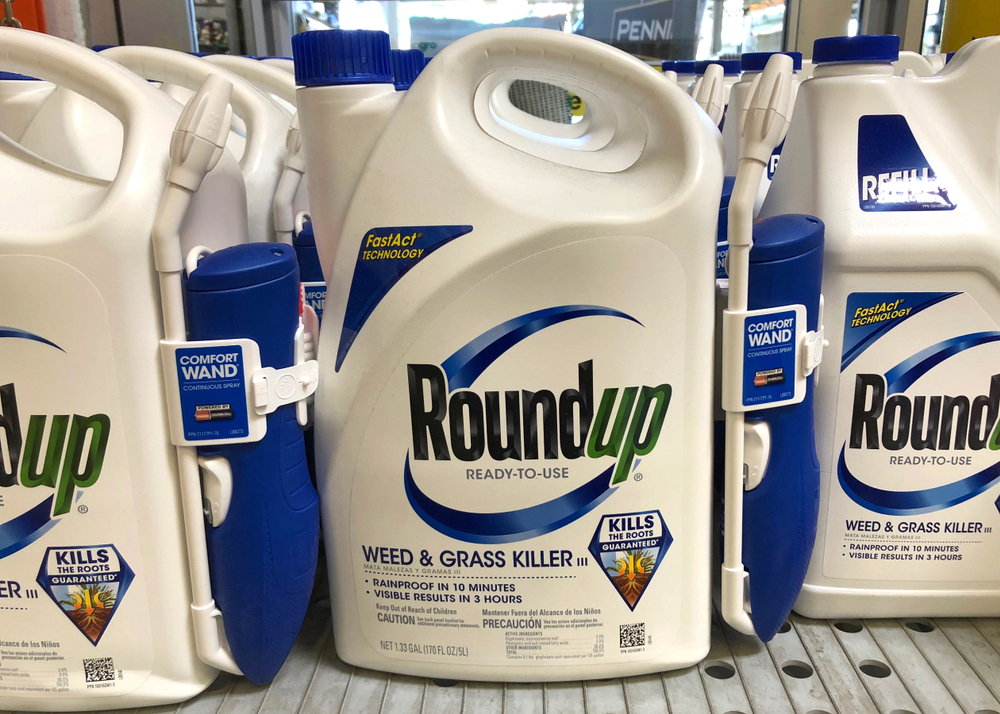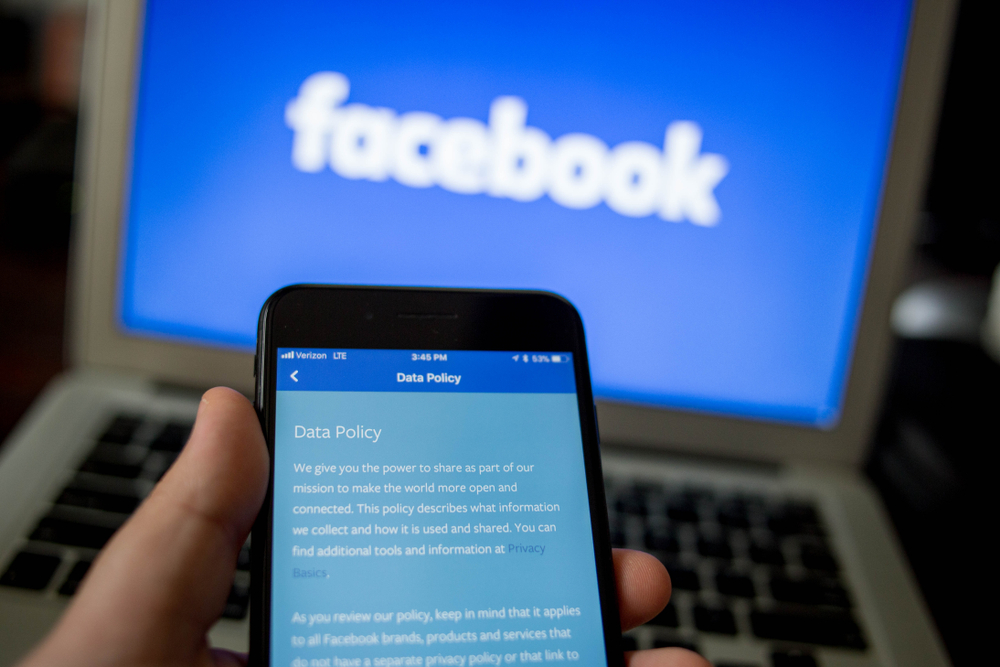Despite a massive settlement agreed to by the makers of the nation’s most popular weed killer, the dispute over whether Bayer’s herbicide causes cancer is still up for debate.
Bayer, which manufactures Roundup, agreed recently to pay up to $10.9 billion to settle litigation over claims its product causes cancer. In its first quarterly report for 2020, Bayer stated it had 52,000 claimants seeking damages. The company admitted no wrongdoing.
Most of those involved in the settlement are people working at commercial farms and nurseries who used Roundup on a consistent basis. Others are home gardeners.
The Natural Resources Defense Council and the Pesticide Action Network North America sued the U.S. Environmental Protection Agency in March, saying the agency ignored scientific evidence about the adverse impacts of glyphosate to appease Bayer. Glyphosate is the main ingredient in Roundup and is at the heart of the cancer claims.
The petition calls for the court to review and set aside the EPA’s decision to continue to approve the use of glyphosate in this country. The initial briefs are scheduled to be filed in August.
RELATED: Vape companies targeting children, claims Florida Attorney General
RELATED: What you need to know about product liability
The EPA’s failure to label Roundup as a cancer-causing product discounts numerous studies and assessments by international scientists. Among them, the World Health Organization’s International Agency for Research on Cancer made the determination in 2015 that glyphosate is likely to be a cancer-causing agent. It linked Roundup with an increased risk of non-Hodgkin’s lymphoma.
The herbicide is also linked to damage caused to pollinators, including bees and butterflies.
“Our goal is to force the EPA to do its job effectively and appropriately,” said Kristen Shafer, executive director of the Pesticide Action Network. “We believe they have not conducted their due diligence in looking at the science that links glyphosate to cancer and other issues.”
What her agency has seen through the years, she said, is the EPA making a lot more time to meet with industry executives than with environmental groups with concerns.
She said she has mixed feelings about the settlement.
“I think it is in one sense heartening that Bayer, formerly Monsanto, is being held accountable for these health harms,” Shafer said. “It is, of course, discouraging as part of the settlement they relinquish any liability or at-fault. But the other thing that is disappointing, as some of our colleagues have pointed out, is that it was a missed opportunity. If you look at big tobacco settlements, there were significant funds set aside for public health and education and other ways to address the issue on a societal level.” Not so with Roundup, she said.
“Roundup remains on the shelf and is still widely used in agriculture,” she said.
In a statement on the suit, NRDC Senior Director of Wildlife Sylvia Fallon said, “Glyphosate is eradicating habitat for pollinators just as bees and butterflies are experiencing sharp population declines due to human activity. This toxic chemical is also linked to human health risks including cancer, which EPA continues to deny.”
The NRDC is calling on the EPA to further assess the link glyphosate may have to cancer and other environmental damage. The petition was filed in the Ninth Court of Appeals in San Francisco.
Bayer CEO Werner Baumann defended his company’s product.
“Our company is grounded in the well-being of our customers,” he said. “As a science-based company committed to improving people’s health, we have great sympathy for anyone who suffers from disease, and we understand their search for answers. At the same time, the extensive body of science indicates that Roundup does not cause cancer, and therefore, is not responsible for the illnesses alleged in this litigation.”
What is Roundup?
Roundup is widely used by home gardeners to eradicate weeds that pop up in flower beds or in sidewalk cracks and by large commercial agricultural operations for many popular crops, including oats, soy, corn, canola, alfalfa, cotton and sorghum.
Toxicologist Alexis Temkin with the EWG, or Environmental Working Group, said independent laboratory tests commissioned in 2018 by her nonprofit found glyphosate in 43 of 45 oat-based products tested, with some containing higher than what were considered safe levels.
In a blog post for EWG, Temkin said her agency tested more than a dozen brands of oat-based foods “to give Americans information about dietary exposures that government regulators are keeping secret.”
According to the National Pesticide Information Center, glyphosate is applied to the leaves of plants to kill broadleaf plants and grasses, including aquatic plants. It was first registered in the U.S. in 1974. There are more than 750 products for sale in the U.S. that contain glyphosate.
Glyphosate will kill most plants and can get on the skin, in the eyes and be breathed in by those using it, according to the NPIC.
Independent panel will revisit question of carcinogen
As part of the recent settlement, Bayer agreed to set up an independent “Class Science Panel” to determine if glyphosate can cause non-Hodgkin’s lymphoma and if so, at what minimum exposure levels.
“Both the class and company will be bound by the Class Science Panel’s determination on this question of general causation, taking this decision out of the jury trial setting and putting it back in the hands of expert scientists,” Bayer said in a statement. “If the Class Science Panel determines that a causal connection between Roundup and NHL is not established, class members will be barred from claiming otherwise in any future litigation against the company.”
The study is expected to take several years.
The panel will have a $1.25 billion budget to support research into treatment of non-Hodgkin’s lymphoma, to be used in diagnostic programs in underserved areas and for assistance payments to class members who develop the cancer before the panel’s work is complete.
Roundup sales will continue
Bayer, a German multinational pharmaceutical and chemical company, bought Monsanto for $63 billion in 2018, according to Beyond Pesticides. Bayer’s stock price increased by 2.5% after the news of the settlements.
Despite the huge settlement, Monsanto, the branch of Bayer’s corporation that manufactures Roundup, will continue to sell the herbicide as the cancer debate drones on.
Bauman, the Bayer CEO, said the company stands firmly behind its glyphosate-based herbicides and calls them one of the most rigorously studied products on the market.
He cites the EPA as finding “it did not identify any human health risks from exposure to glyphosate.”
Cancers named in Roundup class action suits, according to the Associated Press, include:
• Non-Hodgkin’s lymphoma
• Diffuse large B cell lymphoma
• Follicular lymphoma
• Chronic lymphocytic leukemia
• Small lymphocytic lymphoma
• Hairy cell leukemia
• Mantle cell lymphoma
• Burkitt lymphoma
• Skin lymphoma
• Marginal zone B-cell lymphomas










